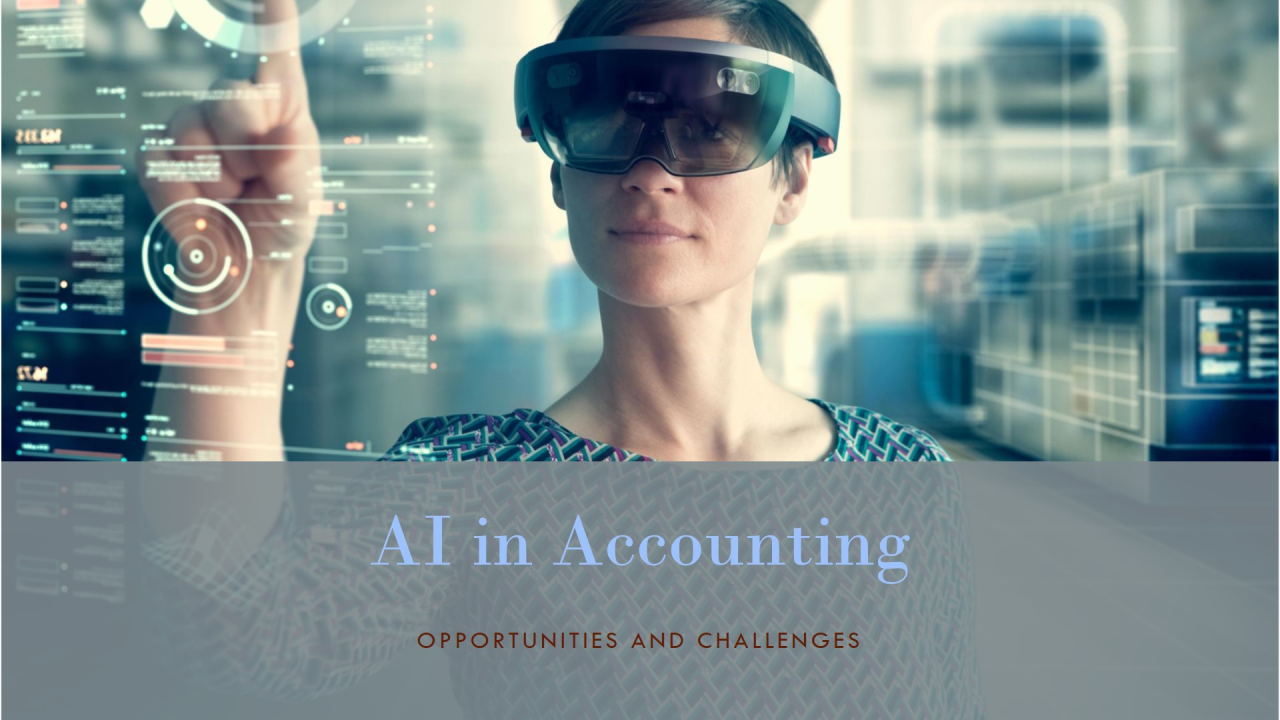
Artificial Intelligence (AI) is transforming industries worldwide, and accounting and advisory services are no exception. From automating repetitive tasks to delivering deep insights through data analytics, AI is reshaping the way firms operate, providing both opportunities and challenges.
As businesses increasingly embrace digital transformation, firms that leverage AI effectively can enhance efficiency, improve decision-making, and deliver greater value to clients. However, this shift also comes with risks and complexities that need careful management.
The Opportunities AI Brings to Accounting and Advisory
- Automation of Repetitive Tasks
- AI-powered tools can handle routine tasks like data entry, bank reconciliations, and invoice processing, freeing up time for professionals to focus on strategic activities.
- This automation reduces errors, improves accuracy, and enhances productivity.
- Advanced Data Analytics
- AI enables firms to analyze vast amounts of data in real time, uncovering trends and insights that were previously inaccessible.
- Predictive analytics helps clients make proactive decisions, from cash flow management to identifying growth opportunities.
- Enhanced Auditing Capabilities
- AI streamlines the audit process by identifying anomalies, flagging risks, and testing entire datasets rather than relying on sample testing.
- This improves both the efficiency and reliability of audits.
- Improved Client Services
- AI-driven chatbots and virtual assistants can provide instant responses to client queries, enhancing client satisfaction and reducing response times.
- Personalized financial planning and advisory services are now possible through AI, tailored to the unique needs of each client.
- Cost Savings
- By automating tasks and optimizing workflows, AI reduces operational costs, allowing firms to allocate resources more strategically.
The Challenges of AI in Accounting and Advisory
- Data Privacy and Security
- With sensitive financial information at stake, ensuring data security is paramount. AI systems must comply with stringent privacy regulations like GDPR or CCPA.
- Ethical Concerns
- AI decisions can sometimes lack transparency, leading to ethical dilemmas. Ensuring accountability in AI-driven processes is crucial for maintaining trust.
- Skill Gaps
- As AI adoption grows, the demand for tech-savvy professionals with expertise in AI tools and data analytics is increasing. Firms need to invest in training and upskilling their workforce.
- Implementation Costs
- While AI promises long-term savings, the initial investment in technology, infrastructure, and training can be significant, especially for small to medium-sized firms.
- Regulatory Compliance
- AI adoption in accounting must align with evolving regulations and standards, requiring firms to stay updated on compliance requirements.
How Firms Can Leverage AI Effectively
- Start Small and Scale Gradually
- Identify repetitive, high-volume tasks that can be automated and pilot AI tools in those areas. Scale AI adoption as the organization gains confidence and expertise.
- Invest in Training
- Equip employees with the skills needed to use AI tools effectively and interpret the insights they generate.
- Choose the Right Tools
- Select AI platforms tailored to your firm’s specific needs, whether it’s accounting automation, audit analytics, or client engagement.
- Prioritize Data Security
- Implement robust cybersecurity measures to protect sensitive client information and comply with regulations.
- Monitor and Evaluate
- Continuously monitor the performance of AI tools, ensuring they deliver value while minimizing risks. Regularly evaluate their impact and refine strategies accordingly.
The Future of AI in Accounting and Advisory
AI is not replacing accountants or advisors—it’s empowering them. By handling mundane tasks, AI allows professionals to focus on what truly matters: providing strategic guidance and building stronger client relationships.
The firms that embrace AI as a strategic partner will not only enhance their operations but also gain a competitive edge in an increasingly digital world. At Mavins International, we are committed to helping our member firms harness the potential of AI while navigating its complexities.
Are you ready to take the next step in your AI journey? Contact us to explore how AI can transform your operations and drive success in today’s business landscape.
#ArtificialIntelligence #AccountingInnovation #DigitalTransformation #AIInBusiness #MavinsInternational #DataAnalytics #FutureOfWork #Automation #AccountingAdvisory
